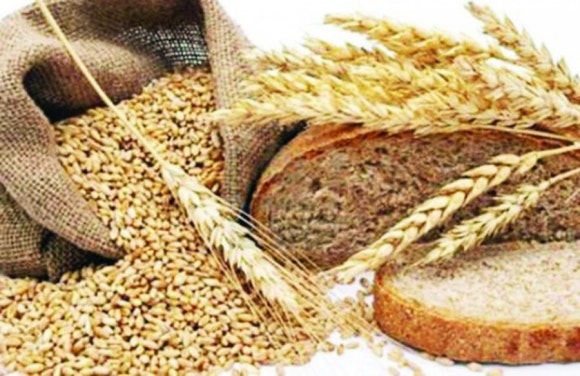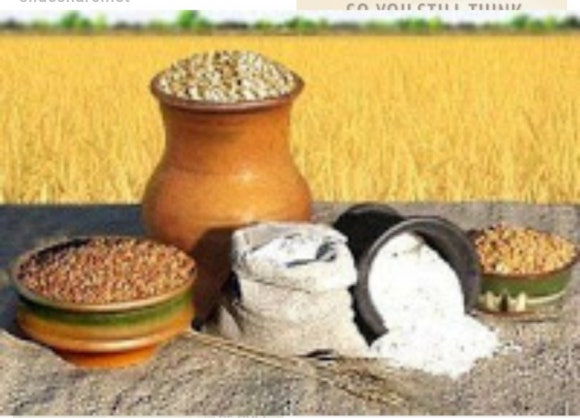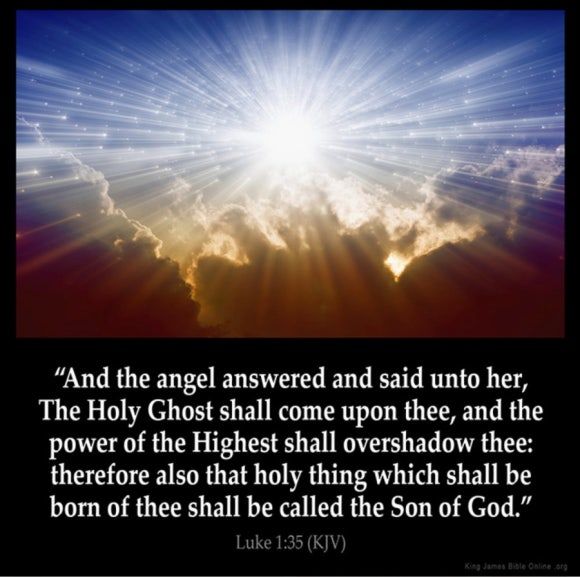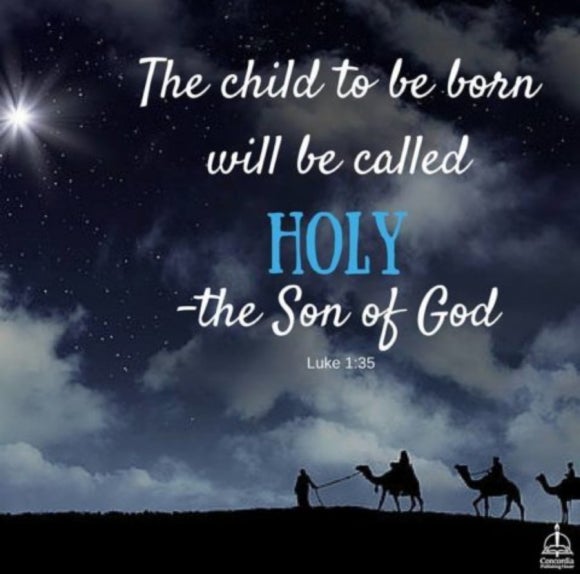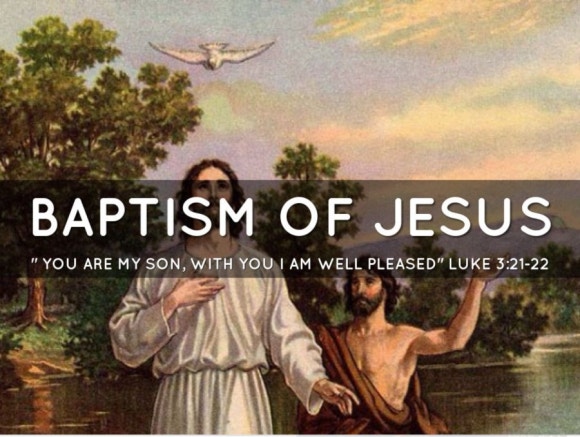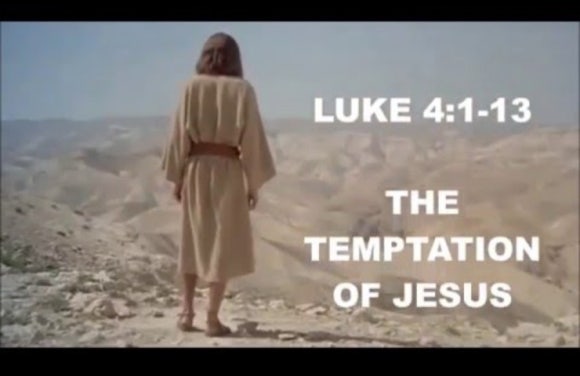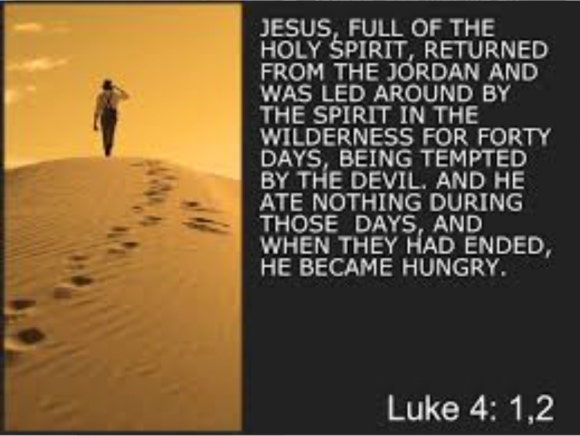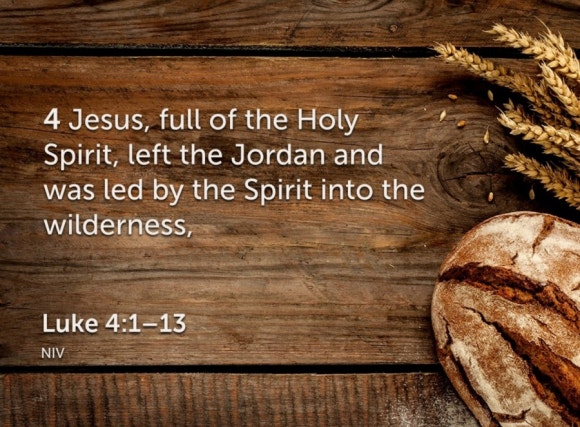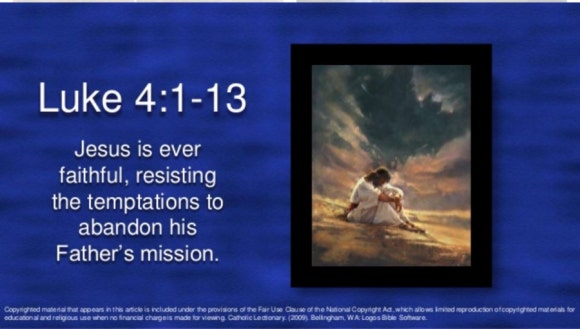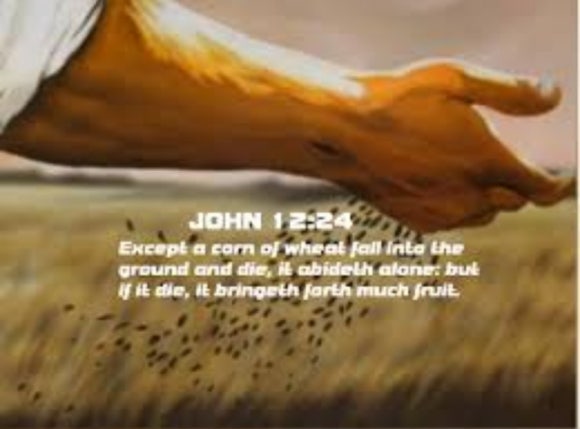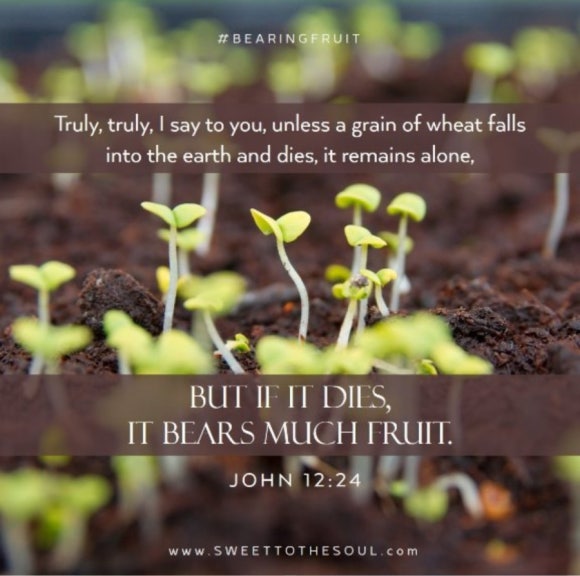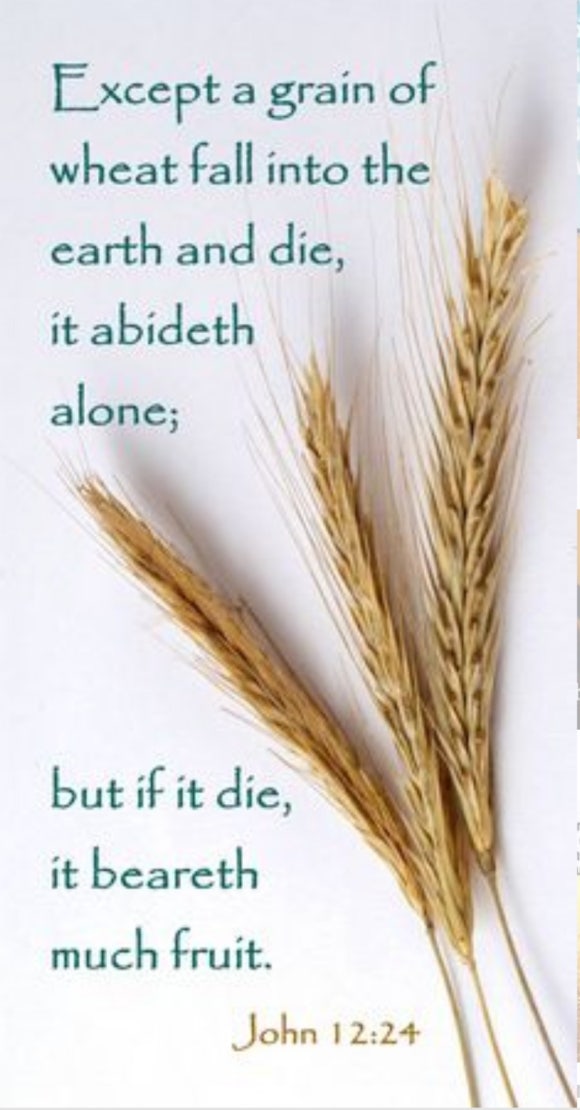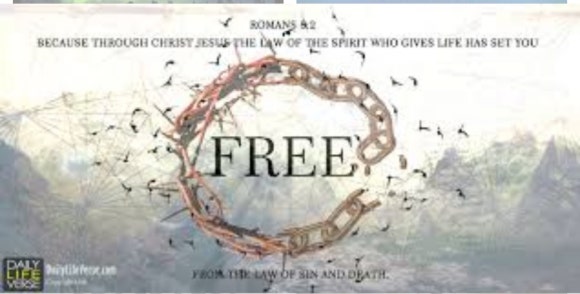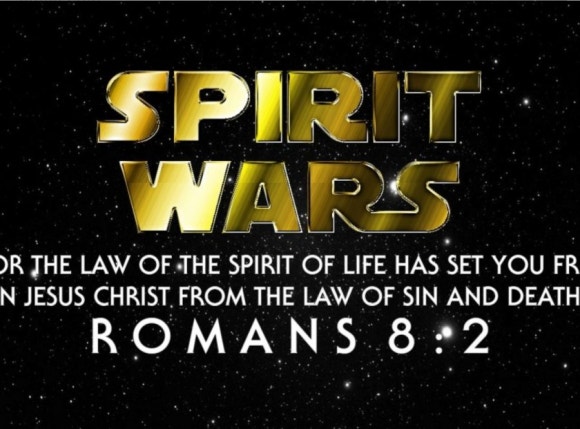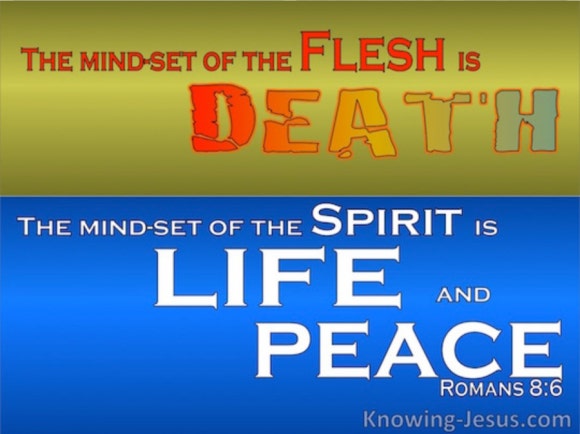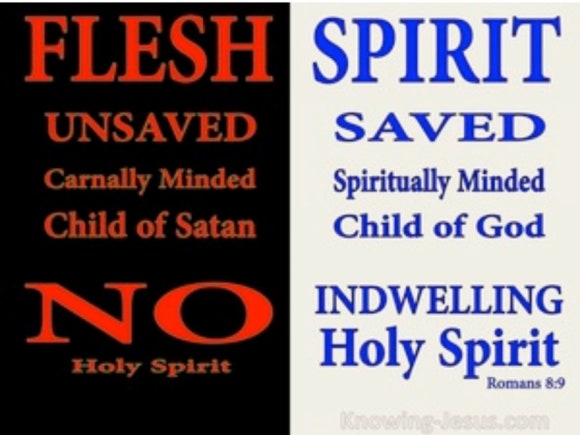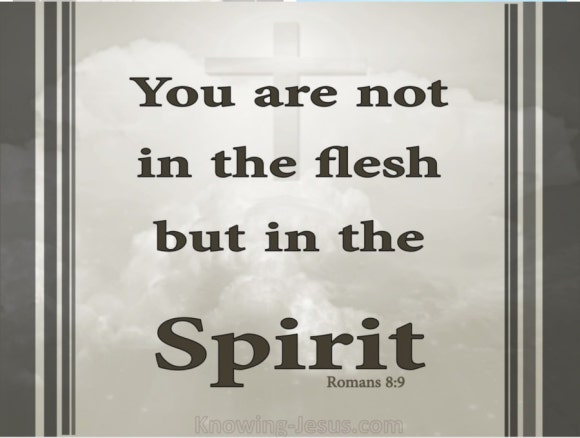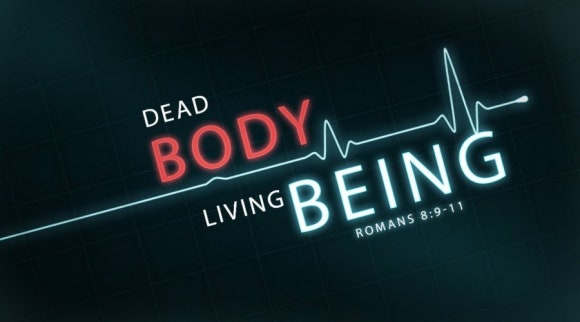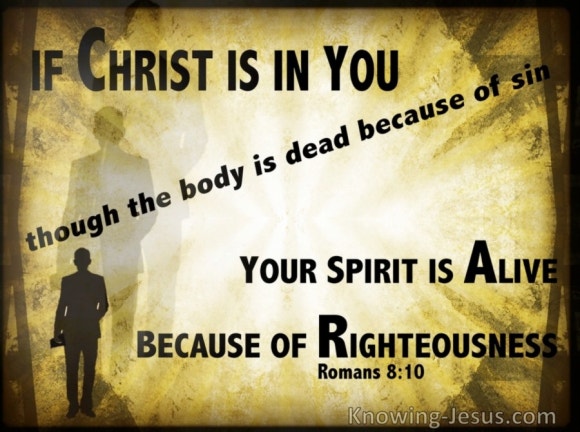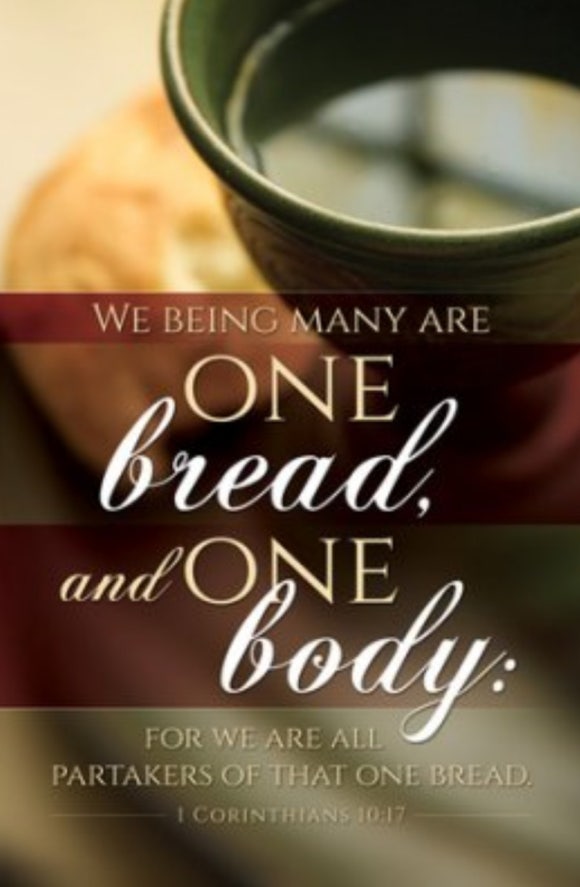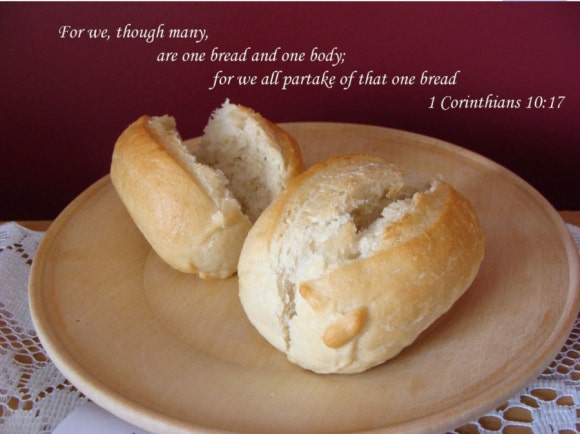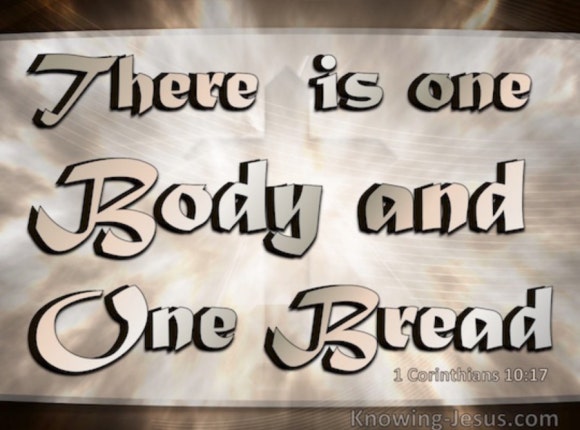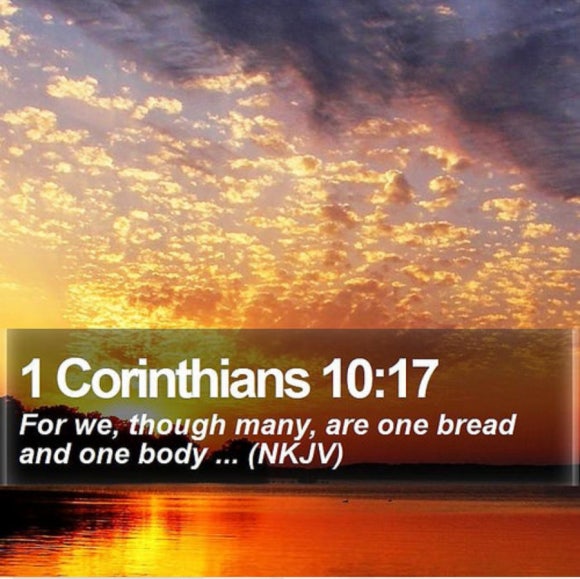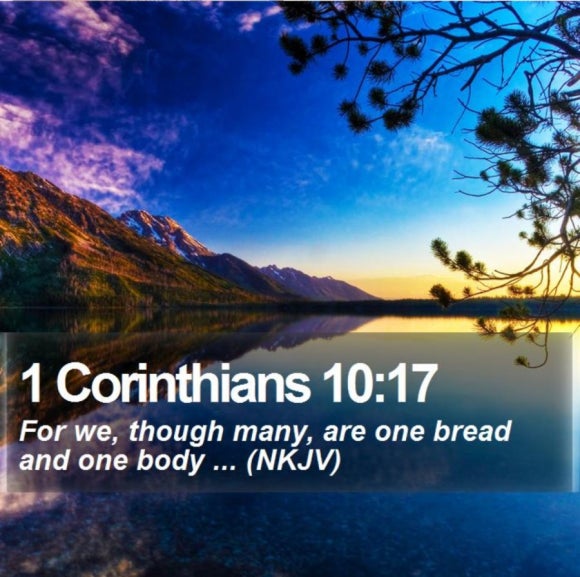레위기 메시지 15 - 그리스도인의 생활과 교회 생활을 위한 소제의 성분들
메시지 15 - 그리스도인의 생활과 교회 생활을 위한 소제의 성분들
성경 : 레위기 2:1-2, 4, 11, 13, 누가복음 1:35, 마태복음 1:18, 20, 누가복음 3:21-22, 4:1, 23:14, 마태복음 12:46-50, 마가복음 10:38, 요한복음 12:24, 7:6, 16-18, 로마서 8:2, 3, 6, 9-11, 13, 고린도전서 10:17
LIFE-STUDY OF LEVITICUS
MESSAGE FIFTEEN
THE ELEMENTS OF THE MEAL OFFERING FOR THE CHRISTIAN LIFE AND THE CHURCH LIFE
Scripture Reading: Lev. 2:1-2, 4, 11, 13; Luke 1:35; Matt. 1:18, 20; Luke 3:21-22; 4:1; 23:14; Matt. 12:46-50; Mark 10:38; John 12:24; 7:6, 16-18; Rom. 8:2, 3, 6, 9-11, 13; 1 Cor. 10:17
이번 메시지에서 나는 소제에 관해 더 말하고 싶은 부담이 있다. 그러나 나는 단지 소제 자체를 말하고 싶은 부담은 없다. 나의 부담은 그리스도인의 생활과 교회 생활과 관련된 소제의 성분들, 소제의 구성 요소들에 관해 여러분과 교통하는 것이다.
In this message I am burdened to give a further word on the meal offering. However, I am not burdened to speak on the meal offering merely in itself. Rather, my burden is to fellowship with you concerning the elements, the components, of the meal offering in relation to the Christian life and the church life.
실제의 영은 우리 체험 가운데서 우리에게 제물들의 실제가 됨
THE SPIRIT OF REALITY BEING THE REALITY OF THE OFFERINGS TO US IN OUR EXPERIENCE
지난 번 메시지에서 우리는 모든 제물들의 실제는 그 영으로 실제화되신 그리스도임을 보았다. 이것은 우리의 체험 가운데서 그 영이 제물들의 실제가 됨을 의미한다. 우리가 주관적으로 그 영을 갖지 못한다면, 우리는 제물들의 실제를 갖지 못할 것이며 단지 제물들이신 그리스도에 대한 교리만을 가질 것이다. 그분 자신 안에서 그리스도는 제물들의 실제이시나, 그분이 생명 주는 영이라는 사실을 떠나서는 그분은 우리에게 이 실제가 되실 수 없으시다.
In the foregoing message we saw that the reality of all the offerings is Christ realized as the Spirit. This means that in our experience the Spirit is the reality of the offerings. If we do not have the Spirit in a subjective way, we will not have the reality of the offerings but only the doctrine regarding Christ as the offerings. In Himself, Christ is the reality of the offerings, but He cannot be this reality to us apart from His being the life-giving Spirit.
다섯 가지 기본 제물들
레위기에는 다섯 가지 기본 제물들-번제물, 소제물, 화목제물, 속죄제물, 속건 제물-이 있다. 이 다섯 가지 제물들 중의 어떤 것이 주요 제물이라고 말하기는 어렵다. 어떤이들은 화목제물이 레위기 1장부터 5장까지에서 볼 때 중간에 위치하고 있기 때문에 그 제물이 주요 제물이라고 말할 것이다. 다른이들은 주요 제물은 하나님을 위하여 절대적인 그리스도를 상징하는, 번제물이라고 말할 것이다. 또 다른이들은 우리가 일상 생활에서 죄와 죄들의 문제를 갖고 있기 때문에 속죄 제물이나 속건 제물이 주요 제물이라고 말할 것이다. 비록 우리에게는 기본 제물들이 모두 필요하지만, 그리스도를 여러 방면에서 그리고 세밀하게 체험할 수 있는 주요 제물은 소제물이다.
THE FIVE BASIC OFFERINGS
In Leviticus there are five basic offerings: the burnt offering, the meal offering, the peace offering, the sin offering, and the trespass offering. It is difficult for us to say which of these five offerings is the main offering. Some may say that the peace offering is the main offering because, according to chapters one through five of Leviticus, it stands in the center. Others may say that the main offering is the burnt offering, which signifies Christ as the one who is absolute for God. Still others may say that, since we have the problems of sin and sins in our daily life, either the sin offering or the trespass offering is the main offering. Although we need all the basic offerings, the main offering with respect to the experience of Christ in its many aspects and details is the meal offering.
레위기를 이해함에 있어서, 우리는 오늘날 많은 성경 교사들, 특별히 우리를 앞서간 형제회의 교사들의 어깨 위에 있다. 우리는 물론 그들을 신뢰해야 한다. 그러나 우리는 그들의 어깨 위에 있기 때문에 그들이 보지 못했던 것을 볼 수 있다. 이것들 중의 하나는 어떤 종류의 사람을 조성시켜 주는 제물들을 누리는 문제이다. 우리는 우리가 먹는 것이 된다. 우리가 소제이신 그리스도를 먹는다면, 우리는 그리스도로 조성될 것이다.
In understanding the book of Leviticus, we today are standing on the shoulders of many Bible teachers, especially those among the Brethren, who have gone before us. We surely must give credit to them. Nevertheless, because we are on their shoulders, we can see things which they have not seen. one of these things is the matter of enjoying the offerings in order to be constituted to become a certain kind of person. We become what we eat. If we eat Christ as the meal offering, we will be constituted with Christ.
우리는 소제물을 구성하는 성분들을 알 필요가 있다. 우리는 소제가 네 가지 성분들을 포함하나 특별히 두 가지 다른 성분은 제외된다는 것을 알아야 한다. 이 모든 성분들을 아는 것이 실제적이고 자세하게 그리스도를 아는 것이다.
We need to know the elements that compose the meal offering. We need to realize that the meal offering includes four elements but specifically excludes two other elements. To know all these elements is to know Christ in a practical and detailed way.
고운 가루
소제의 첫 번째 성분은 고운 가루이다. 이 고운 가루는 그리스도의 인성을 상징하며, 그분의 인성은 균형잡혀 있고 곱다.
FINE FLOUR
The first element in the meal offering is the fine flour. This fine flour signifies Christ’s humanity, which is balanced and fine.
고운 가루
소제의 첫 번째 성분은 고운 가루이다. 이 고운 가루는 그리스도의 인성을 상징하며, 그분의 인성은 균형잡혀 있고 곱다.
FINE FLOUR
The first element in the meal offering is the fine flour. This fine flour signifies Christ’s humanity, which is balanced and fine.
레위기 2장을 주의깊게 읽는다면, 우리는 기름이 세 가지 방법으로 가루에 더해지는 것을 보게 될 것이다. 기름은 가루와 섞일 수 있으며, 혹은 가루에 부어질 수 있다. 가루는 또한 기름으로 발라질 수 있다. 기름을 가루에 더하는 가장 중요한 방법은 가루에 기름을 섞는 것(연합하는 것)이다. 고운 가루는 마른 채 남아 있는 것이 아니라 내적으로 외적으로 모두 「기름이 칠해진다」.
If we read Leviticus 2 carefully, we will see that the oil is added to the flour in three ways. The oil may be mingled with the flour, or it may be poured on the flour. The flour may also be anointed with the oil. The most important way of adding the oil to the flour is mingling the flour with the oil. The fine flour does not remain dry but is “oiled” both inwardly and outwardly.
유향
세 번째 성분은 유향이다. 예표론에서 유향은 부활을 상징한다. 유향의 달콤한 향기는 그리스도의 부활의 향기를 상징한다. 부활 안에 계신 그리스도는 얼마나 달콤한지!
FRANKINCENSE
The third element is frankincense. In typology frankincense signifies resurrection. The sweet savor of frankincense signifies the fragrance of Christ’s resurrection. How sweet Christ is in His resurrection!
소금
소제의 네 번째 성분은 소금이다. 예표론에서 소금은 그리스도의 죽음, 또는 십자가를 상징한다. 소금은 맛을 내며 병균을 죽이고 보존하는 역활을 한다. 이것이 그리스도의 십자가의 효능이다.
SALT
The fourth element of the meal offering is salt. In typology salt signifies the death, or the cross, of Christ. Salt seasons, kills germs, and preserves. This is the effect of the cross of Christ.
소제에 누룩이나 꿀을 섞지 못함
소제에는 누룩이나 꿀을 섞지 못한다. 누룩은 죄와 다른 소극적인 것을 의미한다. 복음서들에서 주 예수님은 바리새인들의 누룩, 사두개인들의 누룩, 헤롯의 누룩을 말씀하신다(마 16:6, 11-12, 눅 12:1, 막 8:15).
NO LEAVEN OR HONEY IN THE MEAL OFFERING
The meal offering is to have neither leaven nor honey. Leaven signifies sin and other negative things. In the Gospels the Lord Jesus speaks of the leaven of the Pharisees, the leaven of the Sadducees, and the leaven of Herod (Matt. 16:6, 11-12; Luke 12:1; Mark 8:15).
꿀은 천연적인 사람의 생명을 상징한다. 그것은 우리의 천연적인 생명의 나쁜 방면이 아닌 좋은 방면을 상징한다. 우리는 사람들이 항상 나쁘다고 생각해서는 안 되는데, 이는 그들이 때로는 매우 선하기 때문이다. 그러나 이 천연적인 선함이 바로 꿀이다. 미움은 누룩인 반면에, 천연적인 사랑은 꿀이다. 마찬가지로 교만은 누룩이나 천연적인 겸손은 꿀이다.
Honey signifies the natural human life. It signifies our natural life not in its bad aspect but in its good aspect. We should not think that people are always bad, for sometimes they are very good. But this natural goodness is honey. Hatred is leaven, but natural love is honey. Likewise, pride is leaven, but natural humility is honey.
꿀은 누룩과는 다르게 보인다. 그러나 일정 기간이 경과한 후 꿀이 발효하면, 이 발효는 누룩을 가져올 것이다. 이것은 우리가 좋든 나쁘든, 결과는 결국 같음을 가리킨다. 이것이 창세기 2장이 선악을 알게 하는 지식의 나무를 말하는 이유이다. 우리는 좋을 수도 있고 나쁠 수도 있으나 어느 쪽의 경우이든 결과는 누룩이 될 것이다.
Honey seems to be different from leaven. However, after a period of time honey can ferment, and this fermentation will issue in leaven. This indicates that whether we are good or bad, the result will eventually be the same. This is the reason Genesis 2 speaks of the tree of the knowledge of good and evil. We may be either good or bad, but in either case the result will be leaven.
그리스도께서 이 땅 위에서 사셨던 생명은 누룩과 꿀이 없는 생명이셨으며, 오늘날 우리도 이와 같은 생명을 살아야 한다. 우리는 네 가지 적극적인 성분들-고운 가루와 기름과 유향과 소금-은 가져야 하나 두 가지 소극적인 성분들-누룩과 꿀-은 가져서는 안 된다. 이렇게 한다면, 우리는 합당한 소제물, 곧 그리스도의 죽음을 통한 부활 안에서 신성으로 기름발라진 인성으로 구성되고 누룩과 꿀이 없는 제물이 될 것이다. 이런 생명은 하나님을 만족시키는 음식이며 또한 하나님의 섬기는 자들인 우리를 영양 공급하는 음식이기도 하다.
The life Christ lived on earth was a life without leaven and without honey, and we should live the same kind of life today. We need to have the four positive elements—fine flour, oil, frankincense, and salt—but not the two negative elements—leaven and honey. If this is our situation, we will be a proper meal offering, an offering composed of humanity oiled with divinity in resurrection through Christ’s death and without leaven and honey. This kind of life is food to satisfy God and also to nourish us as God’s serving ones.
사복음서에 있는 이 땅 위에서의 그리스도의 사람의 생활의 묘사
사복음서에서 우리는 이 땅 위에 사셨던 그리스도의 사람의 생활의 묘사를 본다. 그분은 영원 안에서는 하나님이셨으나 성육신으로 말미암아 실제의 사람이 되셨으며 이 땅 위에서 한 사람으로서 사셨다.
THE PORTRAIT IN THE FOUR GOSPELS OF CHRIST’S HUMAN LIVING on EARTH
In the four Gospels we have a portrait of Christ’s human living on earth. He was God in eternity, but through incarnation He became a real man, and He lived on earth as a man.
그리스도의 사람의 생활 안에 있는 그 영
그리스도의 인성은 하나님의 영과 많은 관계가 있다. 그분은 성령으로 잉태되셨다(눅 1:35, 마 1:18, 20). 잉태로부터, 즉 그분의 사람되심이 시작된 바로 그 때부터, 그분의 인성은 성령으로 싸여 있었다. 예수님은 성령을 떠나서는 잉태될 수 없었으며 태어날 수 없었다. 주님의 잉태와 출생은 전적으로 성령에 속한 것이다. 그분의 인성은 성령과 연합되어 있었다. 그리스도의 사람의 생활은 이 연합을 근거로 했다.
The Spirit in Christ’s Human Living
Christ’s humanity has much to do with the Spirit of God. He was conceived of the Holy Spirit (Luke 1:35; Matt. 1:18, 20). From the time of conception, that is, from the very beginning of His manhood, His humanity was wrapped up with the Holy Spirit. Apart from the Holy Spirit, Jesus could not have been conceived and born. The Lord’s conception and birth were altogether of the Holy Spirit. His humanity was mingled with the Holy Spirit. Christ’s human living was based on this mingling.
하나님을 위하여 사역하기 위해 나오셨을 때, 주 예수님은 침례를 받으셨다. 『예수도 세례를 받으시고 기도하실 때에 하늘이 열리며 성령이 형체로 비둘기같이 그의 위에 강림하시더니』(눅 3:21下-22上). 성령이 온순함으로 잘 알려진 비둘기 형체로 강림했다는 사실은, 하나님의 영이 한 인격이며 단지 능력이나, 통로나, 도구가 아님을 가리킨다. 한 인격인 성령이 주 예수님 위에 임했다. 이것은 기름이 고운 가루에 부어진 것과 마찬가지로 성령이 주 예수님 위에 부어졌음을 의미한다. 한면으로 인성 안에서 그분은 성령으로 연합되셨으며, 또 한면으로는 성령이 그분 위에 부어졌으며 그분을 기름 발랐다.
When the Lord Jesus came forth to minister for God, He was baptized. “As Jesus was baptized and was praying, the heaven was opened, and the Holy Spirit descended in bodily form as a dove upon Him” (Luke 3:21b-22a). The fact that the Holy Spirit descended in the form of a dove, which is known for its gentleness, indicates that the Spirit of God is a person and not merely a power, channel, or instrument. The Holy Spirit as a person came upon the Lord Jesus. This means that just as oil was poured upon the fine flour, the Holy Spirit was poured upon the Lord Jesus. on the one hand, in His humanity He was mingled with the Holy Spirit; on the other hand, the Holy Spirit was poured upon Him and anointed Him.
누가복음 4장 1절 전반부는, 『예수께서 성령의 충만함을 입어』라고 말한다. 그분은 그 영으로 충만함을 입으셨으며, 즉 그 영으로 완전히 기름발라지셨는데, 이는 그분이 그 영으로 연합되셨기 때문이며 그 영이 그분 위에 부어졌기 때문이었다. 때문에 그분은 그 영 안에서 처신하셨고 일하셨다. 그분이 그분의 사역에서 하신 모든 것은 그 영 안에서-본질적인 영 안에서와 또한 경륜적인 영 안에서-행한 것이었다. 그분은 그 영과 그분 위에 부어진 그 영으로 연합되신 한 사람이셨다.
The first part of Luke 4:1 speaks of “Jesus, full of the Holy Spirit.” He was full of the Spirit, thoroughly oiled with the Spirit, because He was mingled with the Spirit and because the Spirit had been poured upon Him. He thus behaved and worked in the Spirit. Everything He did in His ministry was done in the Spirit—in the essential Spirit and also in the economical Spirit. He is a man mingled with the Spirit and with the Spirit poured upon Him.
흠 없는 인성-누룩 없는 사람의 생명
주 예수님의 인성과 사람의 생활은 흠이 없었다. 그분은 빌라도에게 이끌려가서 로마의 권력에 의해 심판받으셨지만, 빌라도는 그분에게서 어떤 흠도 찾을 수 없음을 선포했다(눅 23:14). 주 예수님은 죄가 없으셨다. 그분 안에는 전혀 누룩이 없었다.
A Faultless Humanity—a Human Life with No Leaven
The humanity and human living of the Lord Jesus were without fault. He was brought to Pilate to be judged by the Roman authority, but Pilate declared that he could not find any fault in Him (Luke 23:14). The Lord Jesus had no sin. In Him there was no leaven.
천연적인 생명을 부인함-꿀 없는 사람의 생명
주 예수님에게는 꿀이 없으시다. 어느 날 그분이 군중들에게 이야기 하는 동안에, 『그 모친과 동생들이 예수께 말하려고 밖에 섰더니 한 사람이 예수께 여짜오되 보소서 당신의 모친과 동생들이 당신께 말하려고 밖에 섰나이다 하니』(마 12:46-47). 이 말을 들으시고 그분은 말하던 사람에게, 『누가 내 모친이며 내 동생들이냐 하시고 손을 내밀어 제자들을 가리켜 가라사대 나의 모친과 내 동생들을 보라 누구든지 하늘에 계신 내 아버지의 뜻대로 하는 자가 내 형제요 자매요 모친이니라』(48-50절)고 말씀하셨다. 이것은 그분께는 꿀이 없으시며, 그분이 천연적인 생명을 부인하셨음을 가리킨다.
Denying the Natural Life— a Human Life with No Honey
With the Lord Jesus there is no honey. one day, while He was speaking to the crowds, “His mother and His brothers stood outside seeking to speak to Him. And someone said to Him, Behold, Your mother and Your brothers are standing outside seeking to speak to You” (Matt. 12:46-47). When He heard this, He said to the one who spoke to Him, “Who is My mother, and who are My brothers? And stretching out His hand over His disciples, He said, Behold, My mother and My brothers! For whoever does the will of My Father who is in the heavens, he is My brother and sister and mother” (vv. 48-50). This indicates that with Him there is no honey, that He denied the natural life,
사도행전 15장 36절부터 39절까지에 바울과 바나바 사이의 문제가 있다. 이 문제는 천연적인 생명의 꿀로 인해 기인된 것이다. 바나바는 그들의 여행에 요한 마가를 데리고 가고자 했으나, 『바울은 밤빌리아에서 자기들을 떠나 한 가지로 일하러 가지 아니한 자를 데리고 가는 것이 옳지 않다』(38절)고 하였다. 그 결과로, 『서로 심히 다투어 피차 갈라섰다』(39절). 마가는 바나바의 생질이었으므로(골 4:10), 바울과 바나바 사이의 문제는 바나바와 마가의 천연적인 관계에 의해 야기된 것 같다. 거룩한 기록에 의해 정당화되었던(행 15:39下-40) 바울은 이 꿀에 동의하지 않았다.
In Acts 15:36-39 there was a problem between Paul and Barnabas. This problem was caused by the honey of the natural life. Barnabas wanted to take John Mark with them on their travels, but “Paul did not consider it suitable to take with them this one who withdrew from them in Pamphylia and did not go with them to the work” (v. 38). As a result, “there arose a sharp contention, so that they separated from each other” (v. 39a). Mark was Barnabas’s cousin (Col. 4:10), and it is likely that the problem between Paul and Barnabas was caused by the natural relationship between Barnabas and Mark. Paul, who was vindicated by the divine record (Acts 15:39b-40), did not agree with this honey.
그리스도인 생활 가운데서 우리는 될 수 있는 한 천연적인 생명을 피하기 위해 주 예수님을 배워야 한다. 믿는이들인 우리는 분명히 다른이들을 사랑해야 하나, 천연적으로 사랑하지 않도록 주의해야 한다. 우리가 다른이들을 천연적으로, 인간적으로 사랑하기가 얼마나 쉬운지! 심지어 교회 생활 안에서도 우리는 천연적으로 우리와 같은 사람들을 사랑할 수 있다. 우리는 어떤 형제의 기질이 우리의 기질과 비슷하기 때문에 그를 사랑할지 모른다. 이런 사랑은 꿀인 천연적인 사랑이다. 빌립보서 2장 2절에서 바울은, 『같은 사랑을 가지고』라고 말한다. 같은 사랑을 가지는 것은 모든 성도들을 같은 정도로 사랑하는 것이다. 우리는 자신 안에서는 이런 사랑을 가질 수 없는데, 이는 우리의 천연적인 경향은 차별하여 사랑하는 것이기 때문이다. 어떤 성도들에 대한 우리의 사랑은 다른 성도들을 대하는 사랑보다 정도가 더 깊을 수 있다. 이것은 꿀이다. 주 예수님의 사랑은 이와 같지 않다.
In Acts 15:36-39 there was a problem between Paul and Barnabas. This problem was caused by the honey of the natural life. Barnabas wanted to take John Mark with them on their travels, but “Paul did not consider it suitable to take with them this one who withdrew from them in Pamphylia and did not go with them to the work” (v. 38). As a result, “there arose a sharp contention, so that they separated from each other” (v. 39a). Mark was Barnabas’s cousin (Col. 4:10), and it is likely that the problem between Paul and Barnabas was caused by the natural relationship between Barnabas and Mark. Paul, who was vindicated by the divine record (Acts 15:39b-40), did not agree with this honey.
항상 소금에 절여진 생활
마가복음 10장 38절과 요한복음 12장 24절은 주 예수님이 항상 소금에 절여지셨음을 가리킨다. 즉 그분은 항상 십자가의 그늘 아래서 생활하셨다. 실제로 십자가에 못 박히시기 전에 그분은 매일 십자가에 못 박힌 생활을 하셨다.
A Life That Is Always Salted
Mark 10:38 and John 12:24 indicate that the Lord Jesus was always salted, that He always lived a life under the shadow of the cross. Before He was actually crucified, He daily lived a crucified life.
마가복음 10장 38절에서 주 예수님은 야고보와 요한에게, 『너희가 나의 마시는 잔을 마시며 나의 받는 세례를 받을 수 있느냐』라고 물으셨다. 그들이 할 수 있다고 대답하자 그분은 이어서, 『너희가 나의 마시는 잔을 마시며 나의 받는 세례를 받으려니와』(39절)라고 말씀하셨다. 잔과 침례는 모두 그리스도의 죽음을 말한다(요 18:11, 눅 12:50). 주님의 잔을 마시고 그분이 받으신 침례를 받는 것은 그분의 죽음을 체험하는 것이다. 즉 그분의 죽음을 우리 체험 가운데서 적용하는 것이다.
In Mark 10:38 the Lord Jesus asked James and John, “Are you able to drink the cup which I drink, or to be baptized with the baptism with which I am baptized?” When they said that they were able, He went on to say, “The cup which I drink you shall drink; and the baptism with which I am baptized, you shall be baptized” (v. 39). Both the cup and the baptism refer to Christ’s death (John 18:11; Luke 12:50). To drink the Lord’s cup and to be baptized with the baptism with which He has been baptized are to experience His death, to have His death applied to us in our experience.
찬송가 46장은 소금에 절여지는 것에 대해 말한다. 2절과 후렴은 다음과 같다.
A hymn that speaks of being salted is Hymns, #631. The second stanza and the chorus say:
주의 형상 이루도록 나를 죽음에 넣네
십자가에 머물면서 혼 생명을 부인해
죽음 없이는 생명이 없네
오직 죽음 통해서만 생명 자라네
If I’d have Christ formed within me,
I must breathe my final breath,
Live within the Cross’s shadow,
Put my soul-life e’er to death.
If no death, no life,
If no death, no life;
Life from death alone arises;
If no death, no life.
그리스도께서 사신 삶은 소금으로 절여진 삶이었다. 오늘날 우리에게 있어서는 십자가를 체험하는 것이 소금에 절여지는 것이다. 우리는 우리의 일상 생활에 소금을 받아들여야 한다. 이렇게 한다면, 우리는 소제인 고운 가루가 될 것이다.
The life Christ lived was a life of being salted. For us to experience the cross today is to be salted. We need to receive the salt in our daily life. If we do this, we will be the fine flour for the meal offering.
요한복음 12장에서 주 예수님은 예루살렘으로 들어가셔서 군중들로부터 환영받으셨다. 인간적으로 볼 때 그것은 그분의 황금기였다. 그러나 사람들이 그분을 찾는다는 말을 들으셨을 때 그분은, 『한 알의 밀이 땅에 떨어져 죽지 아니하면 한 알 그대로 있고 죽으면 많은 열매를 맺느니라』(24절)고 말씀하셨다. 이 말씀은 주 예수님이 자신이 높여지는 것을 허락하는 대신에 소금에 절여지셨음을 가리킨다. 그분은, 『나는 한 알의 밀이다. 나는 사람들에 의해 환대받고 영광받고 높여져서는 안 된다. 나는 땅에 떨어져 죽어야 한다.』라고 말씀하신 것 같다.
In John 12, when the Lord Jesus entered Jerusalem, He was welcomed by the crowd. Humanly speaking, that was His golden time. However, when He heard that the people were seeking Him, He said, “Unless a grain of wheat falls into the ground and dies, it abides alone; but if it dies, it bears much fruit” (v. 24). This word indicates that instead of allowing Himself to be exalted, the Lord Jesus was salted. He seemed to be saying, “I am a grain of wheat. I do not need to be welcomed, glorified, and exalted by people. I need to fall into the earth and die.”
우리는 소금에 절여지신 주 예수님을 배워야 한다. 다른이들이 우리를 환대하고 높이고 영화롭게 할 때, 우리는 소금 대신 꿀을 갖기가 매우 쉽다. 우리가 다른이들에게 환대받거나 높여질 때마다 우리는 우리 자신에게 소금을 적용하고 높여지기를 원치 않는 사람이 되어야 하며 죽는 사람이 되어야 한다. 이것은 우리가 그리스도의 십자가를 적용하는 것을 배워야 함을 의미한다.
We need to learn of the Lord Jesus to be salted. When others welcome us, exalt us, and glorify us, it is very easy for us to have honey instead of salt. Whenever we are welcomed or exalted by others, we should apply salt to ourselves and be persons who want not to be exalted but to die. This means that we should learn to apply the cross of Christ.
부활 안의 생명
주 예수님은 항상 소금에 절여지는 생활, 곧 십자가 아래의 생활을 하셨기 때문에 항상 부활 안에 계셨다. 그분이 사셨던 생명은 부활 안에 있는 생명이었다.
A Life in Resurrection
Since the Lord Jesus always lived a life of being salted, a life under the cross, He was always in resurrection. The life He lived was a life in resurrection.
주 예수님이 부활 안에 사셨다는 것은 그분이 그분 자신과 그분의 천연적인 생명을 부인하셨으며 자신을 살지 않고 아버지를 사셨음을 의미한다. 우리는 요한복음 7장에서 이것을 분명히 본다. 6절에서 그분은, 『내 때가 아직 이르지 아니하였거니와 너희 때는 늘 준비되어 있느니라』고 말씀하신다. 다른이들은 어느 때든지 갈 수 있는 자유가 있었으나, 그분은 제한되셨으며 천연적인 생명 안에서 살지 않으셨다.
For the Lord Jesus to live in resurrection meant that He denied Himself and His natural life and that He lived not Himself but the Father. We see this clearly in John 7. In verse 6 He said, “My time has not yet come, but your time is always ready.” Whereas others had the liberty to go anywhere at any time, He was limited, not living in the natural life.
16 절부터 18절까지에서 그분은 계속해서, 『내 교훈은 내 것이 아니요 나를 보내신 이의 것이니라 사람이 하나님의 뜻을 행하려 하면 이 교훈이 하나님께로서 왔는지 내가 스스로 말함인지 알리라 스스로 말하는 자는 자기 영광만 구하되 보내신 이의 영광을 구하는 자는 참되니 그 속에 불의가 없느니라』고 말씀하신다. 여기서 우리는 주 예수님이 그분 자신의 말을 한 것이 아니라 아버지의 말을 하셨음을 본다. 그분의 말씀하심의 근원은 그분 자신이 아니라 아버지셨다. 이것은 그분이 천연적인 생명을 부인하고 아버지의 생명으로 사셨음을 가리킨다. 이것이 부활이다. 때문에 십자가에 못 박히시기 전에도 주 예수님은 부활 안에 사셨으며 천연적인 생명을 부인하고 아버지의 생명을 사셨다.
In verses 16 through 18 He went on to say, “My teaching is not Mine, but His who sent Me. If anyone wills to do His will, he shall know concerning the teaching, whether it is of God, or whether I speak from Myself. He who speaks from himself seeks his own glory, but He who seeks the glory of Him who sent Him, this one is true, and unrighteousness is not in Him.” Here we see that the Lord Jesus did not speak His own word but the Father’s word. The source of His speaking was not Himself—it was the Father. This indicates that He rejected His natural life and lived by the life of the Father. This is resurrection. Therefore, even before He was crucified, the Lord Jesus lived a life in resurrection, denying the natural life and living the Father’s life.
우리는 우리의 결혼 생활과 가정생활에서 부활 안에 살아야 한다. 당신의 결혼 생활에서 당신을 불행하게 만드는 일이 생겼다고 가정해 보라. 그럴 때 당신이 당신 자신과 당신 자신의 생명을 산다면 분명히 당신은 성질을 참지 못할 것이다. 그러나 당신 자신의 생명을 살지 않고 갈라디아서 2장 20절에 계시된 생명을 살 수 있다. 이 구절에서 바울은 먼저, 『내가 그리스도와 함께 십자가에 못 박혔나니』라고 말한다. 이것은 소금을 체험하는 문제, 즉 죽음에 넘겨지고 십자가로 처리되는 문제이다. 그런 다음 바울은 이어서, 『그런즉 이제는 내가 산 것이 아니요 오직 내 안에 그리스도께서 사신 것이라』고 말한다. 이것이 부활이다.
We need to live in resurrection in our married life and family life. Suppose something happens in your married life to make you unhappy. If at such a time you live yourself and your own life, surely you will lose your temper. But instead of living your own life, you may live the kind of life revealed in Galatians 2:20. In this verse Paul first says, “I have been crucified with Christ.” This is a matter of experiencing the salt, of being put to death, of being crossed out. Then Paul continues, “It is no longer I who live, but Christ lives in me.” This is resurrection.
그리스도인의 생명-그리스도의 생명의 복사
주 예수님은 이 땅 위에 계셨을 때 고운 가루이셨으며, 성령으로 기름 부어지셨으며, 항상 소금에 절여지셨으며, 부활 안에 사셨으며 유향의 향기를 지니셨다. 그러나 그분에게는 누룩이나 꿀이 없었다. 때문에 그분은 소제가 되실 수 있었다.
THE CHRISTIAN LIFE— A DUPLICATION OF CHRIST’S LIFE
When the Lord Jesus was on earth, He was fine flour, He was oiled with the Holy Spirit, He was always being salted, and He lived in resurrection, having the flavor of frankincense. But with Him there was neither leaven nor honey. Therefore, He could be a meal offering.
오늘날 우리의 상황도 이와 같아야 한다. 이것은 우리의 그리스도인의 생명이 그리스도의 생명의 복사, 복사의 사본이 되어야 함을 의미한다. 이것은 로마서 8장에 분명히 계시되어 있다.
The situation with us today should be the same. This means that our Christian life should be a duplication, a xerox copy, of Christ’s life. This is clearly revealed in Romans 8.
로마서 8장은 우리가 소제이신 그리스도의 복사가 되어야 함을 분명히 계시한다. 우리는 그분의 복사, 재생산이 되어야 하며 그럼으로써 그분의 어떠하심과 똑같이 되어야 한다. 그리스도께서는 육신 안에서 사람이 되셨으며 오늘날 우리도 육신 안에서 사람이다. 육신 안에서 사람이신 그리스도께서 그 영으로 기름 부음 받으셨다. 오늘날 우리도 내주하시는 그 영으로 기름 부음 받고 있다. 그 영은 우리에게 기름 붓는 역사를 행하기 위해 우리 안에 거하신다. 내주하시는 그 영이 우리에게 기름 붓고 있기 때문에 우리는 우리의 생각을 육신에 두는 것이 아니라 영에 두어야 한다(6절). 그런 다음 우리는 그 영으로 우리의 몸의 행실들을 죽음에 두어야 한다(13절). 이렇게 한다면, 우리는 살게 될 것이며 이 생명은 부활 안의 생명이 될 것이다. 결과적으로 우리는 하나님을 만족케 하는 소제가 되기에 적합하게 될 수 있을 것이다.
Romans 8 definitely reveals that we should be a duplication of Christ as the meal offering. We should be a copy, a reproduction, of Him and thus be the same as He is. Christ became a person in the flesh, and we today are persons in the flesh. As a man in the flesh, Christ was oiled with the Spirit. Today we are being oiled by the indwelling Spirit. The Spirit dwells within us to do the work of oiling us. Since the indwelling Spirit is oiling us, we should set our mind on the spirit, not on the flesh (v. 6). Then by the Spirit we should put to death the practices of the body (v. 13). If we do this, we will live, and this life will be a life in resurrection. As a result, we will be suitable to be a meal offering for God’s satisfaction.
소제의 목적은 하나님을 만족케 하는 것이다. 소제의 최상의 부분, 곧 유향을 포함하는 부분은 하나님의 만족을 위하여 불로 태워졌다. 오늘날 그리스도는 소제의 실제이시다. 그분만이 홀로 하나님을 만족케 하기 위해 올라가는 유향을 갖고 계시다. 온 우주에, 그리스도만이 하나님을 만족케 하는 향기를 산출하고 그분을 행복하게 하고 즐겁게 하기 위해 불로 하나님께 드려질 수 있는 유일한 사람이시다.
The purpose of the meal offering is to satisfy God. The top portion of the meal offering, the portion containing the frankincense, was burned in fire for God’s satisfaction. Christ today is the reality of the meal offering. He alone has the fragrance that ascends to God for His satisfaction. In the entire universe, Christ is the only person who can be offered to God in fire to produce the fragrance that satisfies God and makes Him happy and joyful.
그리스도의 지체들인 우리는, 그분의 복사가 되어 그분이 사셨던 것과 똑같은 생명을 살아야 한다. 이것은 성령으로 기름 부어진 인성의 생명이다. 우리는 날마다 성령으로 기름 부어질 필요가 있다. 우리는 또한 계속적으로 소금을 받아야 한다. 즉 우리는 그리스도의 십자가를 받아 우리의 천연적인 행위들을 죽음에 넣어야 한다. 그럴 때 우리는 부활 안에 살게 될 것이며 하나님을 만족케 하는 유향을 갖게 될 것이다.
As the members of Christ, we should be His duplication and live the same kind of life He lived. This is a life of humanity oiled with the Holy Spirit. Day by day we need to be oiled with the Holy Spirit. We should also continually receive the salt; that is, we should receive Christ’s cross and put our natural deeds to death. Then we will live in resurrection and have the frankincense for God’s satisfaction.
소제 안에 있는 모든 유향은 불로 태워졌다. 이것은 모든 유향은 하나님을 위한 것이며 유향의 어떤 것도 제사장들을 위한 것이 아님을 가리킨다. 우리는 이것으로 소제이신 그리스도 안의 모든 유향은 하나님을 만족케 하는 향기가 되기 위해 태워져야 함을 본다. 이것이 그리스도의 체험이었다. 우리는 그리스도의 지체들, 그분의 복사이기 때문에, 오늘날 이것 역시 우리의 체험이 되어야 한다.
All the frankincense in the meal offering was burned in fire. This indicates that all the frankincense was for God; none of the frankincense was for the priests. From this we see that all the frankincense in Christ as the meal offering is burned to produce a fragrance for God’s satisfaction. This was Christ’s experience. Since we are the members of Christ, His duplication, this should also be our experience today.
소제의 두 형태
레위기 2장에서 우리는 소제가 여러 형태가 될 수 있음을 본다. 여기서의 우리의 관심은 소제의 두 가지 특별한 형태에 있다. 소제는 기름 섞은 가루의 형태가 될 수 있으며, 혹은 떡의 형태가 될 수 있다. 가루의 소제는 개인적인 그리스도를 의미하며 또한 개인적인 그리스도인을 의미한다. 떡의 소제는 단체적인 그리스도, 곧 그분의 몸인 교회를 포함하는 그리스도이다. 신약은 개인적인 그리스도가 떡으로 상징된 단체적인 그리스도가 되었다고 계시한다(고전 12:12). 바울은, 『떡이 하나요 많은 우리가 한 몸이니 이는 우리가 다 한 떡에 참예함이라』(고전 10:17)고 말한다. 이 떡(bread)이 소제의 「떡(cake)」이다.
TWO FORMS OF THE MEAL OFFERING
In Leviticus 2 we see that the meal offering can be in different forms. Our concern here is with two particular forms of the meal offering. The meal offering may be in the form of flour mingled with oil, or it may be in the form of a cake. The flour meal offering signifies the individual Christ; it also signifies the individual Christian. The cake meal offering signifies the corporate Christ, Christ with His Body, the church. The New Testament reveals that the individual Christ has become the corporate Christ (1 Cor. 12:12) signified by the cake. Paul says, “We who are many are one bread, one Body; for we all partake of the one bread” (1 Cor. 10:17). This one bread is a “cake.”
소제에는 개인적인 방면이 있는 동시에 단체적인 방면이 있다. 오늘날 그리스도는 단지 개인적으로 사실 뿐 아니라 또한 그분의 몸, 곧 교회와 함께 사신다. 그리스도는 단체적으로 하나님 앞에서 사신다. 그분은 머리이시며 지체들이 있는 그분의 몸을 갖고 계신다. 그러므로 떡의 형태의 소제에서 우리는 교회 생활을 본다.
With the meal offering there is the individual aspect, and there is also the corporate aspect. Today Christ does not live merely in an individual way; He also lives with His Body, the church. Christ lives before God in a corporate way. He is the Head, and He has His Body with its members. Therefore, with the meal offering in the form of a cake we have the church life.
떡의 소제를 갖기 위해서, 우리는 기름을 섞은 가루가 필요하다. 가루와 기름을 섞음으로 반죽이 된다. 그런 다음 이 반죽은 오븐에 구워져 떡이 된다. 이 떡은 교회 생활의 상징이다. 이 상징은 그리스도의 생명과 우리의 개인적인 그리스도인의 생명이 결국 한 총체가 되며 이 총체가 교회 생활임을 가리킨다.
In order to have a cake meal offering, we need fine flour mingled with oil. The mingling of flour and oil will produce dough. The dough is then baked in an oven and becomes a cake. This cake is a symbol of the church life. This symbol indicates that eventually Christ’s life and our individual Christian life become a totality, and this totality is the church life.
교회 생활은 천사와 같은 생활이 아니라 인성이 충만한 생활이다. 그러나 어떤 그리스도인들은 자신들이 천사처럼 되도록 노력해야 하며 더이상 사람처럼 살아서는 안 된다는 말을 한다. 이러한 관념은 전적으로 잘못된 것이다. 교회 생활을 더 많이 갖고자 한다면, 우리에게는 인성이 더 필요하다. 교회 생활을 갖기 위해서 우리는 인간적이 될 필요가 있다. 그러나 이 인성은 성령과 분리되어서는 안 되며 성령과 연합되며 그 인성 위에 부어지는 성령을 갖고 있는 인성이 되어야 한다.
The church life is not an angelic life but a life full of humanity. However, some Christians have been told that they should try to be like angels and no longer live like human beings. This concept is altogether wrong. If we would have more church life, we need more humanity. For the church life we need to be very human. But this humanity should not be separate from the Holy Spirit;
바꾸어 말하자면, 교회 생활을 갖기 위해서 우리는 기름 부어진 사람, 곧 성령에 의해 기름 부어지고 성령으로 기름 부어진 사람들이 되어야 한다. 더우기 우리는 누룩이나 꿀이 되어서는 안 되며 소금과 유향을 가져야 한다. 우리의 생활에는 많은 소금, 곧 십자가의 죽음이 적용되어야 하며 우리는 부활로 충만해야 한다. 이것이 합당한 교회 생활이다.
rather, it should be a humanity which is mingled with the Holy Spirit and which has the Holy Spirit poured upon it. In other words, for the church life we need to be oiled persons, those who are oiled by the Spirit and with the Spirit. Furthermore, we should not have leaven or honey, but we should have salt and frankincense. In our life much salt, the death of the cross, should be applied, and we should be full of resurrection. This is the proper church life.
이런 교회 생활을 갖고자 한다면, 우리는 인성이 충만해야 하며 천사처럼 사는 것이 아니라 사람처럼 살아야 한다. 그러나 어떤 자매들 심지어 어떤 형제들까지도 마치 천사와 같이 살려고 한다. 이 성도들은 독특하며, 인성이 부족하다. 천사가 되려고 하면 할수록 당신은 더 독특하게 될 것이다. 사람이 되는 대신에 당신은 「유령」이 될 것이다. 그러므로 나는 교회 생활 안에서 우리는 인성으로 충만되어야 하며, 성령과 독립된 인성을 가져서는 안 됨을 다시 한번 말한다.
If we would have this kind of church life, we must be full of humanity and live like men, not like angels. However, certain sisters, and even some brothers, are trying to live as if they were angels. These saints are peculiar and lacking in humanity. The more you try to be an angel, the more peculiar you will be. Instead of being human, you will be a “ghost.” Therefore, I say again that in the church life we need to be full of humanity, but not with a humanity that is independent of the Holy Spirit.
우리는 전적으로 성령에 의존해야 하며, 내적으로 성령으로 기름 부어지고 외적으로 우리 위에 부어지는 성령을 가져야 한다. 우리가 그런 사람들이라면 우리는 그 영으로 충만하게 될 것이다. 우리는 그 영에 집중될 것이며 그 영에 의해 점유될 것이다. 우리는 또한 소금을 통과하고 유향 안에 있는 생활을 하게 될 것이다. 즉 우리는 그리스도의 죽음을 거치고 그분의 부활 안에 있는 생활을 하게 될 것이다. 소금은 누룩, 즉 죄의 병균들을 처리할 것이며 또한 꿀을 처리하여 천연적인 생명을 죽음에 넣을 것이다. 이것이 소제의 교회 생활을 갖는 것이다.
We should be fully dependent on the Holy Spirit, being oiled with Him inwardly and having Him poured upon us outwardly. If we are such persons, we will be full of the Spirit. We will be centered on the Spirit and possessed by the Spirit. We will also live a life that is through salt and in frankincense, that is, a life that is through the death of Christ and in His resurrection. The salt will deal with the leaven, with the germs of sin; the salt will also deal with the honey, putting the natural life to death. This is the way to have a meal offering church life.
소제의 교회 생활은 하나님을 만족시키는 향기를 산출하기 위해 태워질 수 있으며 이 제물의 남은 것은 우리의 음식이 될 것이다. 이것은 우리가 우리의 교회 생활을 먹게 될 것임을 뜻하는데 이는 교회 생활이 우리의 매일의 공급이 될 것이기 때문이다. 그러므로 우리의 매일의 공급인 소제는 단지 그리스도만이 아니라 교회 생활을 포함하는 그리스도이다. 지금 우리는 그리스도를 먹고 있으며 또한 교회 생활을 먹고 있다. 우리는 첫 번째 형태인 가루-개인적인 그리스도-만을 먹을 뿐 아니라 두 번째 형태인 떡-단체적인 그리스도, 곧 교회-도 먹는다. 나는 우리가 장차 모든 교회들에서 소제의 교회 생활, 곧 하나님을 먼저 만족시켜 드린 다음 우리가 먹는 생활을 보게 될 것임을 믿는다.
The meal offering church life can be burned to produce a satisfying fragrance for God, and the remainder of this offering will be our food. This means that we will eat our church life, for the church life will be our daily supply. Thus, the meal offering which is our daily supply is not merely Christ but Christ with the church life. Now we are feeding on Christ, and we are also feeding on the church life. We eat the meal offering not only in the first form as flour—the individual Christ; we also eat the meal offering in the second form as a cake—the corporate Christ, the church. I believe that in the coming days in all the churches we will see a meal offering church life, a life that first satisfies God and then feeds us.
'목회자료 > 성경공부' 카테고리의 다른 글
| 레위기 (0) | 2018.02.13 |
|---|---|
| 민수기 (0) | 2018.02.13 |
| [스크랩] [6월 10일] 개구리 재앙 (0) | 2018.01.31 |
| [스크랩] 성경연대표 (0) | 2018.01.17 |
| [스크랩] 성경의 맥 잡기 [펌] (0) | 2018.01.17 |
